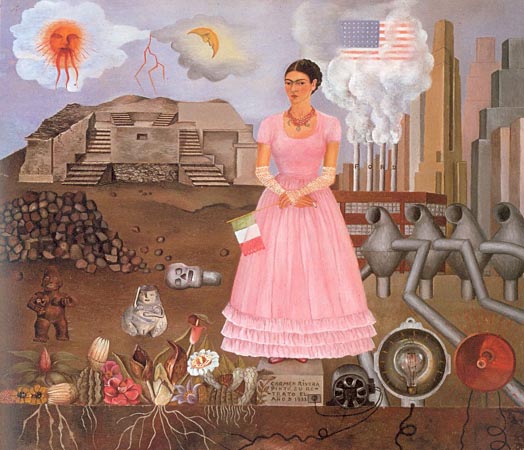
Blogg Posting: "How and why Gender matters and how does that intersect with power?" was the first question that came to me during and after watching this film. The questions asked are great, and made me step outside my own global stand point and try and put myself in these womans' shoes, so to speak.
Is Gender a Form of 'citizenship'?
Yes, in this culture of living on the border, there is a certain reversal when it comes to the life at the border, catering to citizens of the woman, yet woman during the day are defined as labor citizens, because of how they have been gendered in the society they live on and in.
How does national borders function to sustain gender, a system of constructed, unequal social relations?
There is no real educational system or real community support for the young and easily influenced females of the border culture- no outlet to explore other options, other roles in society. The roles are just instilled in the gendered female concept of the border. Because these woman do not have an education, there is no knowledge of where else to go, or challenge their place that society has put them into, so as a result they are frozen in that cultured and suppressing role as a laborer and a sex object in society- and they know no better.
How do national borders function to sustain race, a system of constructed, unequal social relations?
Border culture: turning the race of the citizens into disposable workers, exchanging bodies, in a robotic society. Serial killers emerge from these border cultures, in order to separate themselves from such a robotic and constructed place in society. They take advantage of the class and social place of the gendered women.
How do nations maintain their economic "growth" at national borders though gender and race, two systems of institutionalized power relations?
The border maintaining this "economic growth" by becoming a robotic and programmed society in the national borders. The woman are gendered and controlled by this power of gender by working in these already placed factories, because they are prime candidates for this form of work: the border is an impoverished place, with little growth to come from the people, and this factory offers hope for income and stability, much of what these woman do not have. Education is not of high priority in this culture, and by being a female, and gendered and controlled by this gendering, it seems to be a box that these woman are socially frozen, because of the fact that the border is a place of isolation, communication and voice recognition is obsolete in this culture.
Image from: http://employees.oneonta.edu/farberas/arth/Images/ARTH200/Women/kahlo/border_Mexico_US.jpg

No comments:
Post a Comment